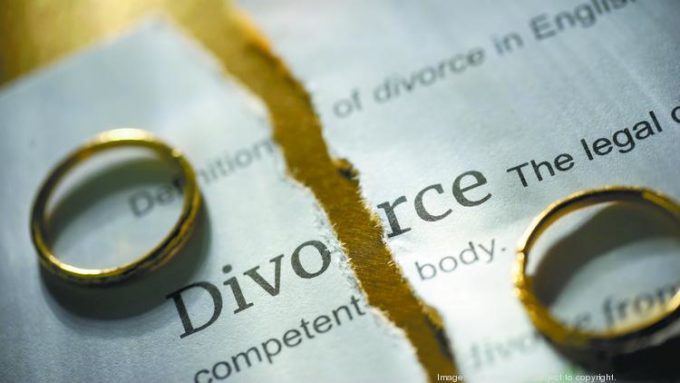Best Divorce Attorney in Orlando
The Best Divorce Attorney in Orlando is Aubrey Law! Life can be filled with many tough situations that test the strength of your character. Divorce being one of those main situations. Divorce is not only hard on the people going through it but also the families of the divorcees. divorce affects your family and children on many levels. But here at Aubrey Law, we know how to handle these difficult situations, and assist everyone involved and affected through these tough circumstances to find a viable solution for everyone. Aubrey Law does this in an easy, and stress-free way. We are proud to know how to take care of the needs of the family. Attorney Aubrey Law gives you all the attention, care, and assistance you need. This is why he is the Best Divorce Attorney in Orlando.
About Aubrey Harry Ducker Jr.
Professional Attorney Aubrey Harry Ducker Jr. provides you with professional legal advice and has been able to provide clients with the results they need for many years. Attorney Aubrey Ducker helps you get through all your family’s legal issues as quickly and painlessly as possible. Advanced in problem-solving techniques, Aubrey Harry Ducker Jr. can help you solve your family law cases with ease. Attorney Aubrey Harry Ducker Jr. can find ways to help both parties come to a healthy and agreeable conclusion. Wondering how long does the process takes? Well, let’s take a further look at the divorce process.
Divorce Process and Proceedings
The divorce process begins with one party (the petitioner) filing a divorce or a complaint. The motion for divorce lays out the grounds for divorce and officially demands a divorce. The petitioner must then forward to the opposing party (the respondent) the petition for divorce and its accompanying documents. The respondent must now give a reply (response to the petition for divorce) to the petitioner within 20 days of receipt of the petition for divorce.
The Discovery Process
Discovery is a process in which each party to a case obtains facts from the other party through the rules of civil procedure. In the case of Florida divorce, the initial discovery must be shared at the end of the proceedings. It must be within 45 days from the date of petition of the divorce or lawsuit petition. This initial discovery is called the Mandatory Discovery. Formal discovery can take place after Mandatory Discovery. Discovery may take the form of interrogatories, production requests, requests for admission and depositions.
Alternatives to Trial Process
Once a divorce has been filed, there are usually two options for a divorce to become final. If the parties are able to agree on the terms of the divorce, the parties can decide to sign a settlement agreement and ask the court to sign the agreement. If the parties are unable to settle the matter, the case will be brought to trial and the judge will decide on the issues for the parties. It should be noted that there are alternatives to waiting for the trial and costs associated with the preparation of the trial.
Trial Proceedings
If the parties are unable to agree on the terms of their divorce, then the last remaining option is a trial. This is also known as the final hearing. This would be after discussions and mediation. Before the trial, you will need to attend a pre-trial conference setting out the ground rules for the case.
Alternative Options to Divorce
Now Aubrey Law understands that maybe the solution for your family might not be a Divorce. Maybe your circumstance needs another solution like a collaborative divorce or mediation. One of these alternative solutions is traditional courtroom litigation, which can be stressful and expensive. Another is collaborative divorce, a process in which a couple work together to determine whether to settle a divorce with little or no outside intervention.
Mediation
Is Mediation Right For you?
To determine whether mediation is the right choice for you and your partner, consider the potential benefits as set out more clearly below. Your professional divorce lawyer will take in to account the decision to help you make the right choice. In certain cases, you may even be forced to seek counseling before you are able to litigate a divorce–the courts have the power to request a divorce from a couple.
If mediation was ordered by the Court or on a voluntary basis, inform yourself about the procedure and its benefits before you start working with a divorce mediator. It’s less costly than the proceedings of your divorce cost savings are one of the primary benefits of mediation in divorce proceedings. Simply put, divorce is difficult in court. A complete divorce case will cost thousands of dollars in litigation.
Mediation can be easier because it removes certain things that push a couple’s divorce bill up, such as investigation, deposition, jury planning, and court hearings. So you maintain greater control over the divorce process. Another benefit of mediation is that it enables you to be in control of your divorce settlement. With mediation, the couple works with a mediator (and in some situations their attorneys), and a neutral third party, to reach agreements for their settlement through a series of guided discussions.
The mediator does not make decisions for the couple. Rather, he or she tells them about their rights and their options regarding each component of their divorce settlement and provides guidance when questions arise as they work toward arrangements that suit their needs.

